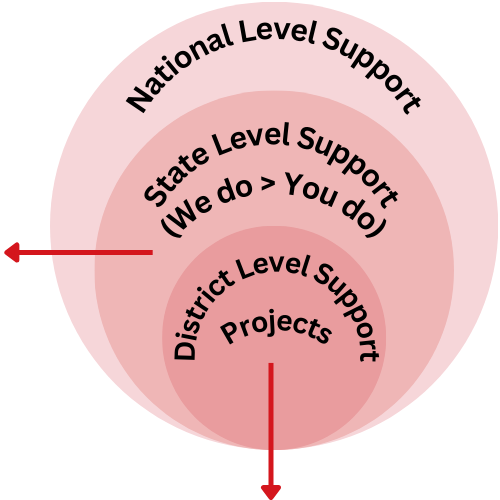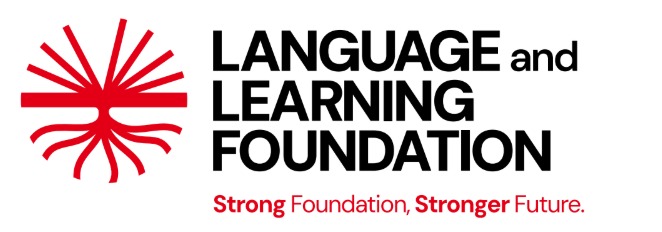HOW WE WORK
State-Level Technical Support
- Build capacity of State Resource Groups (SRGs)
- Co-create instructional design, materials, etc.
- Orient state level resource groups for training of teachers and mentors
- Institutional capacity building
- State LLF team of 5-6 persons
District-Level Support Projects
- Training of teachers using quality
- Effective supervision by mentors
- Effective cluster meetings
- Data analysis and follow-up action
- One LLF person for 100-120 schools working with the government education system
State-Level Technical Support
- Build capacity of State Resource Groups (SRGs)
- Co-create instructional design, materials, teacher handbooks, etc.
- Orient state level resource groups for training of teachers and mentors
- Institutional capacity building
- State LLF team of 5-6 persons

District-Level Support Projects
- Training of teachers
- Effective supervision by mentors
- Effective cluster meetings
- Data analysis and follow-up action
- One LLF person for 100-120 schools working with the government education system
Conceptualise and co-create instructional content
We work closely with state government agencies to co-create teaching-learning materials, such as workbooks for students, teacher guides and handbooks, print-rich classroom materials such as conversation charts, story/poem posters, etc. Doing so ensures that our programming is aligned with the requirements of each state.
Important aspects of our work
Multilingual Education (MLE)
We adopt a multilingual approach, integrating children’s home and additional languages into classroom teaching and learning as part of regular FLN state programmes, because this program helps in better understanding and comprehension which ultimately boost learning outcomes. Our school demonstration programmes, professional development courses and workshops, and advocacy work at the national and state levels have been instrumental in bringing the MLE approach centre stage in FLN programming in at least 3 states.
Equitable & Inclusive FLN
Our focus is on children in the bottom percentile who struggle to learn. We ensure that they are able to match pace with their peers through targeted assessment and remediation efforts. The LLF programme design aims to ensure that all children are learning with access to best FLN materials.
We support the FLN Mission across states, with a particular focus on aspirational districts, tribal population-dominated areas, children with a different home language, migrants, marginalised groups and low-income communities.
Balvatika
We work with children aged 5-6 years on an integrated one-year programme to foster school readiness across all domains of development. It emphasises a play-based learning approach, which strikes a balance between: Free Play, Guided Play, and Structured Play. This balanced approach ensures an engaging and holistic learning experience for children.
2030 MISSION
Donation will be eligible for exemption under section 80G of the Income Tax Act, 1961
